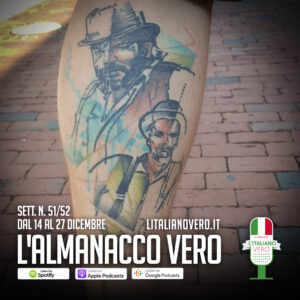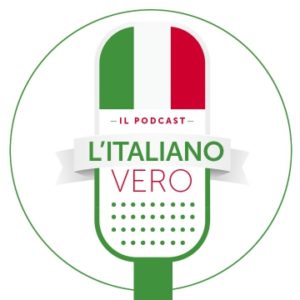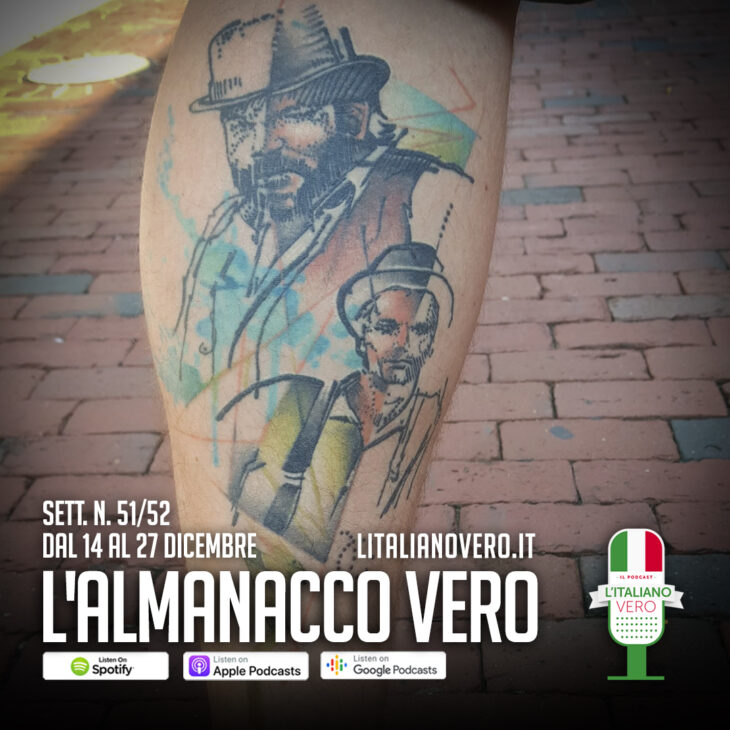
Blog in italiano – tempo di lettura: 5 min
Blog in English – reading time: 5 min
________________
Blog in italiano
Eccoci insieme per l’ultimo almanacco del 2020!
Iniziamo, come di consueto, con i saluti a tutti voi e in particolare ai nuovi patrons e a coloro che ci hanno scritto dandoci anche suggerimenti molto interessanti: Giuditta, Ed Matteo, Nicholas, Goran, Alla, Leo, Brigitte, Edda, Joaquin.
16 dicembre
1773: Boston tea party: Il Boston Tea party, noto anche come distruzione del tè, è considerato uno degli atti di ribellione più famosi della storia moderna e un episodio cruciale nel cammino verso la Rivoluzione americana, che scoppiò due anni dopo.
Accadde tutto in una notte, quella di giovedì 16 dicembre 1773. Sessanta componenti dei Sons of Liberty (in italiano “figli della libertà”, nome della società segreta che si batteva per l’indipendenza delle colonie americane dall’Impero britannico), assaltarono tre navi della Compagnia delle Indie Orientali cariche di tè, attraccate nel porto di Boston. Impossessatisi dell’intero carico, svuotarono le oltre 300 ceste di tè in mare. Un raid simbolico per protestare contro il British Parliament’s Tea Act, una legge ideata per favorire il monopolio della Compagnia delle Indie Orientali attraverso l’eliminazione della tassazione sul tè. Ciò rendeva più competitivi i prezzi della Compagnia rispetto a quelli dei contrabbandieri americani-olandesi.
Il provvedimento fu solo l’ultimo atto di una politica fiscale avvertita come penalizzante dai coloni americani, rispetto alla rappresentanza che veniva loro riconosciuta nel parlamento inglese. In tal senso entrò nella memoria collettiva la frase di John Hancock – uno dei leaders storici della protesta – «no taxation without representation» (letteralmente: “niente tasse senza rappresentanza”).
Una curiosità: il suo nome è diventato, soprattutto a Boston, sinonimo di firma perché la sua firma sulla dichiarazione d’indipendenza era la più grande e da allora si dice anche “fammi la tua John Hancock” per dire fammi la tua firma.
Di fronte all’ennesima prepotenza, i Sons of Liberty guidati da Samuel Adams, tra i padri fondatori degli Stati Uniti d’America (ma oggi noto anche per avere dato il nome ad una birra!), si organizzarono in diversi incontri segreti per concordare azioni di boicottaggio, che raggiunsero il culmine nel raid del 16 dicembre.
La reazione di Londra fu durissima e si tradusse nelle famigerate Leggi intollerabili. La controreazione portò nel 1774 alla decisione del congresso continentale di boicottare sistematicamente tutte le merci inglesi e nella primavera del 1775 scoppiò la lunga Guerra d’indipendenza americana, che si concluse nel 1783 con il Trattato di Parigi.
21 dicembre
1900: Scoperta dei gruppi sanguigni: Il biologo austriaco, Karl Landsteiner nel dicembre del 1900 scoprì che a distinguere i tipi di sangue era la capacità di agglomerare i globuli rossi; di qui la classificazione in quattro gruppi sanguigni umani: A, B, AB e 0. Fino ad allora si era fatto ricorso all’impiego pratico e diffuso della trasfusione di sangue, ma con esiti incerti e per lo più letali perché non c’era modo di sapere se il sangue di due individui fosse compatibile o no. Nessun medico sapeva darsi una spiegazione del perché questo sistema non funzionasse, se non in rarissimi casi. Le intuizioni di Landsteiner a inizio Novecento furono fondamentali per migliorare il sistema delle trasfusioni, riducendo i rischi di incompatibilità tra donatore e ricevente. La determinazione del gruppo sanguigno cominciò ad entrare nell’uso nel 1907, e la trasfusione fu praticata su vasta scala nel corso della prima guerra mondiale, salvando un gran numero di vite.
La straordinaria scoperta gli valse, nel 1930, il premio Nobel per la medicina.In seguito identificò insieme ad Alexander Wiener il cosiddetto “fattore Rh”, che condiziona insieme ad altre variabili la compatibilità del sangue nelle trasfusioni.
A proposito di sangue, vi suggeriamo un paio di modi di dire molto italiani:
– FARE SANGUE: Provare una forte agitazione emotiva, una grande eccitazione interiore per qualcuno che ci intriga. Un esempio? Se Cubo vede una bella ragazza, gli fa sangue!
– ESSERE DI SANGUE LATINO: E’ un’espressione che indica i popoli che anticamente parlavano latino ma oggi la si usa anche in senso per lo più ironico e scherzoso per indicare chi ha un temperamento passionale, focoso, soprattutto in campo amoroso, quale si attribuisce appunto ai popoli latini. Un esempio? Ovviamente il nostro latin lover Cubo è di sangue latino!
22 dicembre
1970 Esce al cinema il film “Lo chiamavano Trinità…”: Diretto da Enzo Barboni, Lo chiamavano Trinità… debuttò nelle sale italiane portando una piccola grande rivoluzione nel genere western. Per la prima volta le vicende di pistoleri e cowboy dell’ovest d’America lasciavano entrare la comicità, grazie alle scazzottate e alle battute memorabili della coppia d’oro Bud Spencer (al secolo Carlo Pedersoli, che scelse il cognome Spencer in onore dell’attore Spencer Tracy e il nome Bud dal nome della sua birra preferita!) e Terence Hill (al secolo Mario Girotti, che scelse il suo nome in onore del grande commediografo latino Terenzio).
Il film entrò tra i classici dello spaghetti-western, seppur in chiave umoristica. I due attori fecero insieme dal 1967 al 1985 ben 18 film e divennero una coppia cult, non solo in Italia ma nel mondo! Cubo ci racconta che a Boston vide un ragazzo austriaco che se li era tatuati sul polpaccio!
Nel salutarvi, vi comunichiamo che faremo presto un episodio natalizio in cui Cubo e Paolo parleranno un po’ delle nostre espressioni legate alle feste; sapete che noi italiani veri chiamiamo il 24, la Vigilia e il 26, Santo Stefano in ricordo del primo martire cristiano?
In attesa dell’imperdibile episodio natalizio, ci portiamo avanti facendovi tutti insieme TANTI AUGURI!⭐
By Sara🎙🇮🇹
►Prova ad ascoltarci con trascrizioni e sottotitoli:
https://www.litalianovero.it/wp/trascrizioni-episodi/
Se le provi migliori e ci sostieni.💪
►Ti piace il nostro podcast? Per favore sostienici al costo di un caffè perché
senza di voi non ci sarebbe il podcast:
https://www.patreon.com/litalianoveropodcast
________________
Blog in Inglese
Here we are together for the last almanac of 2020!
We begin, as usual, with greetings to all of you and in particular to the new patrons and to those who have written to us, also giving us very interesting suggestions: Giuditta, Ed Matteo, Nicholas, Goran, Alla, Leo, Brigitte, Edda, Joaquin.
December 16,
1773: Boston tea party: The Boston Tea party, also known as the distruzione del tè (destruction of tea), is considered one of the most famous acts of rebellion in modern history and a pivotal episode on the path to the American Revolution, which broke out two years later.
It all happened in one night, that of Thursday 16 December 1773. Sixty members of the Sons of Liberty (in Italian “children of freedom”, name of the secret society that fought for the independence of the American colonies from the British Empire), attacked three ships of the Dutch East India Company loaded with tea, docked in Boston Harbor. Having taken possession of the entire load, they emptied the more than 300 chests of tea into the sea. A symbolic raid to protest the British Parliament’s Tea Act, a law designed to promote the monopoly of the East India Company by eliminating taxation on tea. This made the Company’s prices more competitive than those of the American-Dutch smugglers.
The measure was only the latest act of a fiscal policy perceived as penalizing by the American colonists, compared to the representation that was recognized to them in the English parliament. In this sense, the phrase of John Hancock – one of the historical leaders of the protest – entered the collective memory “niente tasse senza rappresentanza” (literally: “no taxes without representation”).
A curiosity: his name has become, especially in Boston, synonymous with the word signature because his signature on the declaration of independence was the largest so since then it has often been said “fammi la tua John Hancock” (“give me your John Hancock” to mean “give me your signature”.
Faced with yet another arrogance, the Sons of Liberty led by Samuel Adams, one of the founding fathers of the United States of America (but today also known for having given the name to a beer!), organized themselves in several secret meetings to agree to boycott actions, which culminated in that December 16 raid.
London’s reaction was very harsh and resulted in the infamous Intolerable Acts. The counter-reaction led in 1774 to the decision of the Continental Congress to systematically boycott all British goods and in the spring of 1775 the long American War of Independence broke out, which ended in 1783 with the Treaty of Paris.
21 December 1900:
Discovery of blood types: The Austrian biologist, Karl Landsteiner in December 1900 discovered that to distinguish the types of blood was the ability to agglomerate red blood cells; hence the classification into four human blood groups: A, B, AB and 0. Until then, the practical and widespread use of blood transfusion had been used, but with uncertain and mostly lethal outcomes because there was no way of knowing if the blood of two individuals was compatible or not. No doctor knew how to explain why this system did not work, except in very rare cases. Landsteiner’s insights at the beginning of the twentieth century were fundamental for improving the transfusion system, reducing the risks of incompatibility between donor and recipient. Blood grouping began to come into use in 1907, and transfusion was practiced on a large scale during World War I, saving large numbers of lives.
The extraordinary discovery earned him, in 1930, the Nobel Prize for medicine. Later he identified together with Alexander Wiener the so-called “Rh factor”, which shapes, along with other variables, the compatibility of blood in transfusions.
Speaking of blood, we suggest a couple of very Italian modi di dire (common sayings):
– FARE SANGUE: (MAKE BLOOD) Feeling a strong emotional turmoil, a great inner excitement for someone who intrigues us. An example? If Cubo sees a beautiful girl, it fa sangue (bleeds him)!
– ESSERE DI SANGUE LATINO (BEING OF LATIN BLOOD): It is an expression that indicates the peoples who in ancient times spoke Latin but today it is also used in a mostly ironic and joking sense to indicate those who have a passionate, fiery temperament, especially in the field of love, such as it attributes precisely to the Latin peoples. An example? Obviously our latin lover Cubo is of Latin blood!
December 22,
1970 The film “Lo chiamavano Trinità” (“They Call Me Trinity”) is released: Directed by Enzo Barboni, They call me Trinity made its debut in Italian cinemas bringing a great little revolution in the western genre. For the first time the stories of gunslingers and western American cowboys let in comedy, thanks to the fistfights and memorable jokes of the golden couple Bud Spencer (aka Carlo Pedersoli, who chose the surname Spencer in honor of actor Spencer Tracy and the name Bud from the name of his favorite beer!) and Terence Hill (aka Mario Girotti, who chose his name in honor of the great Latin playwright Terenzio).
The film entered among the classic spaghetti-westerns, albeit in a humorous vein. The two actors made 18 films together from 1967 to 1985 and became a cult couple, not only in Italy but in the whole world! Cubo tells us that in Boston he saw an Austrian boy who had them tattooed on his calf!
As we bid you farewell, we inform you that we will soon have a episodio natalizio (Christmas episode) in which Cubo and Paolo will talk a little about our expressions related to the holidays; do you know that we true Italians call the 24th, la Vigilia (the Eve) and the 26th, Santo Stefano (Saint Stephen) in memory of the first Christian martyr? Waiting for the unmissable Christmas episode, we carry on by wishing you all together TANTI AUGURI! (BEST WISHES!) ⭐
By Kevin (ItalianRocks)
►Try listening to us with transcripts and subtitles:
https://www.litalianovero.it/wp/trascrizioni-episodi/
If you try them you improve and support us.💪
►Do you like the podcast? Please support us at the cost of a coffee
without you there would be no podcast:
https://www.patreon.com/litalianoveropodcast
 Settembre 9, 2019
Settembre 9, 2019 24 min
24 min Luglio 29, 2019
Luglio 29, 2019 13 min
13 min Luglio 15, 2019
Luglio 15, 2019 24 min
24 min Luglio 1, 2019
Luglio 1, 2019 15 min
15 min Giugno 17, 2019
Giugno 17, 2019 21 min
21 min Maggio 30, 2019
Maggio 30, 2019 29 min
29 min Maggio 9, 2019
Maggio 9, 2019 21 min
21 min Aprile 30, 2019
Aprile 30, 2019 28 min
28 min Aprile 17, 2019
Aprile 17, 2019 15 min
15 min Aprile 10, 2019
Aprile 10, 2019 24 min
24 min Aprile 3, 2019
Aprile 3, 2019 24 min
24 min Gennaio 26, 2020
Gennaio 26, 2020 21 min
21 min Gennaio 12, 2020
Gennaio 12, 2020 20 min
20 min Dicembre 29, 2019
Dicembre 29, 2019 24 min
24 min Dicembre 15, 2019
Dicembre 15, 2019 21 min
21 min Dicembre 1, 2019
Dicembre 1, 2019 12 min
12 min Novembre 17, 2019
Novembre 17, 2019 min
min Novembre 3, 2019
Novembre 3, 2019 20 min
20 min Ottobre 20, 2019
Ottobre 20, 2019 14 min
14 min Ottobre 7, 2019
Ottobre 7, 2019 9 min
9 min Settembre 23, 2019
Settembre 23, 2019 33 min
33 min Gennaio 9, 2024
Gennaio 9, 2024 6 min
6 min Dicembre 2, 2022
Dicembre 2, 2022 31 min
31 min Ottobre 8, 2022
Ottobre 8, 2022 18 min
18 min Dicembre 25, 2021
Dicembre 25, 2021 1 min
1 min Settembre 18, 2021
Settembre 18, 2021 21 min
21 min Agosto 14, 2021
Agosto 14, 2021 17 min
17 min Maggio 4, 2020
Maggio 4, 2020 32 min
32 min Aprile 12, 2020
Aprile 12, 2020 41 min
41 min Agosto 26, 2019
Agosto 26, 2019 18 min
18 min Agosto 12, 2019
Agosto 12, 2019 11 min
11 min Giugno 5, 2019
Giugno 5, 2019 9 min
9 min







Leave a Comment